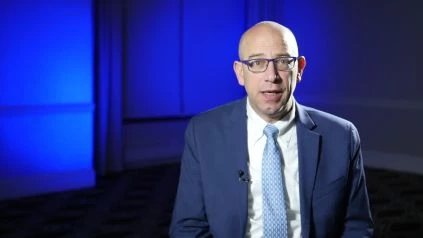Charles Rudin, MD, PhD of Memorial Sloan Kettering Cancer Center discusses small-cell lung cancer new approaches using immunotherapy. Small-cell lung cancer represents about 15% of all lung cancers and is a very difficult disease with historically poor outcome. There are newer approaches being used for small-cell lung cancer and the large interest is on immunotherapy, especially with drugs like nivolumab and ipilimumab that show significant activity during initial studies.
For the initial Phase III, looking at chemotherapy with or without the CTLA-4 inhibitor, ipilimumab, was negative suggesting that the drug doesnt synergize well with chemotherapy. However, the data for nivolumab and pembrolizumab looks good and the combination of nivolumab and ipilimumab is superior to nivolumab alone. The combination of nivolumab and ipilimumab becomes very popular, already in the NCCN treatment guide, although its not yet FDA approved.
One of the highlights at World Lung Conference was the reponse to immunotherapy, either with nivolumab or the combination of nivolumab and ipilimumab in tumor mutation burden. Small-cell cancer is a disease highly associated with tobacco and these tumors are very mutant, they have a lot of mutations in them. But the group that tends to have the highest mutations tend to do substantially better with both nivolumab and the combination of nivolumab and ipilimumab. In the preliminary data presented at the World Lung Conference, there is a great possibility that many can benefit from this new immunologic strategy.

